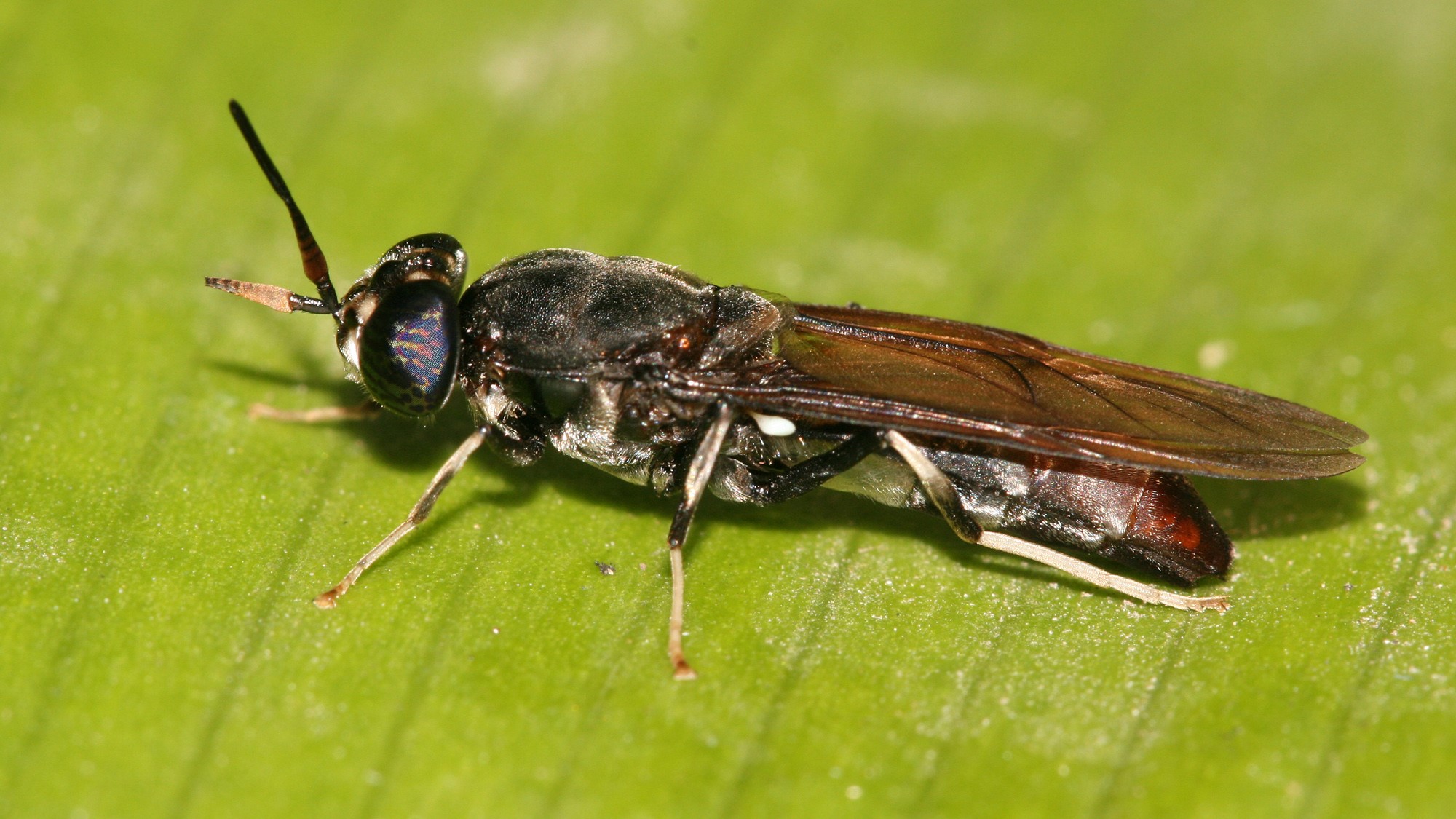A Hungarian company specialized in farming black soldier fly larvae, creating animal feed additives and an effective soil improver for agricultural use. This unique manufacturing process in Hungary was discussed by former President János Áder and Rajmond Percze, CEO of Agroloop Hungary Ltd, in the latest episode of the Blue Planet podcast, released on Monday.
The chairman of the board of trustees of the Blue Planet Climate Protection Foundation asked the entrepreneur how high-protein animal feed could be produced from plant waste by-products, such as salad trimmings, with the advantage that it does not need to be transported thousands of kilometres like soy or fish meal used for similar purposes.
Although insect farming for feed purposes, which is still unique in Hungary, produces an annual amount of 6,000 tonnes and therefore cannot yet replace soy, it is already so popular that buyers have pre-ordered the factory’s entire output for five years, the CEO said, stressing that the company makes ‘the food chain sustainable on the feed side.’ He highlighted that their products are intended for animals only and will not be found on hypermarket shelves.
A jövő természetes erőforrása
Egy fiatal magyar csapat fekete katonalégy lárvájából készít fehérjét, amivel fenntarthatóvá teszik az élelmiszerláncot a takarmány alapanyag oldalon. Tehát csak állatoknak szánják a terméket, nem embernek. Az Agroloop alapítója és ügyvezetője azt mondja, fehérjére szüksége van az állattartó telepeknek. Ezeket most sok esetben Dél-Amerikából szerzik be, még pedig szója formájában, ami GMO-s.
Percze explained that they collect salad trimmings and other by-products from the domestic dairy, food manufacturing, and milling industries. These are mixed into feed materials for the black soldier fly larvae, which reach their ‘slaughter weight’ in 12 days, the body mass at which they can start the processing journey.
The end products of the process will be feed ingredients, namely high-quality feed protein and fat. The expert explained that even the by-product excreted after digesting the feed is utilized, producing excellent quality organic soil improvers.
The CEO noted that
the systemically processed 120 tonnes of incoming raw material per day generates no waste.
János Áder highlighted that the farming process is completely closed, so no black soldier flies will escape, ensuring no inconvenience for those living near the plant. It is also important that only plant-based raw materials are used, excluding unpleasant odours.
In response to how the company obtains the larvae and transforms them into protein and oil, Rajmond Percze explained that this fly species lives for 45 days. During the first 12 days, it intensively accumulates food, taking in almost 100 per cent of the calories it will use in its lifetime. Therefore, it eats very quickly and a lot, making it an excellent bio-converter. This is why they chose this insect, adding that 30 tonnes of insects are produced daily from the 120 tonnes of daily feed.
The processing technology involves cleaning and drying, followed by pressing to separate the dry matter from the oil. The dry part becomes a chip-like material, ground into flour at the end of the process. The flour and oil will be used as feed ingredients.
Read more about other Blue Planet episodes:








